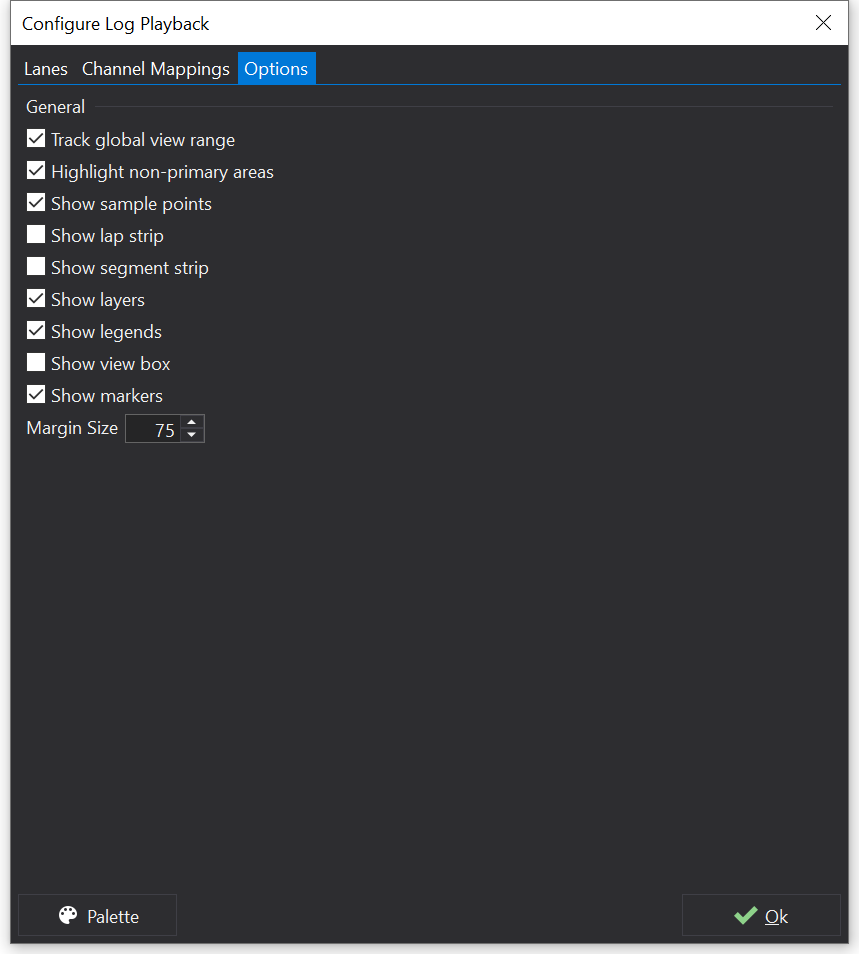Log Playback
Log Playback allows the playback of data-logs downloaded from either an ECU, a data-logger or PC Logging with GWv4.
The data is visualized using a configurable graph and can be played back as if online to an ECU.
To access the Log Playback window, from the main menu select . This will display the following window, if the log playback feature has been used before then there may already be a log loaded with some logging flags etc visible:


To load a data-log, click the ‘Select Log…’ button in the strip of controls at the top of the window. Use the file browser to locate a data-log and click ‘Open’.
Once opened, some channels may be displayed, or the log will appear empty. See {{ < topic “Setting up the Graph Lanes and Channels” > }} to add channels.


Playing and Stopping the Log
The log transport buttons in the top left of the playback window control the playing/stopping of the log:
This will set the log playback back to the begging of the log. If the log is currently playing, it will continue playing from the beginning. Default keyboard shortcut: Shift+F9
Starts the log playing. Default keyboard shortcut: F9
Stops the log playing. Default keyboard shortcut: F9
When on, the log will loop back to the beginning when it has reach the end.
Setting the current position
Simply click on the position on the graph you want to play from. A black line will indicate the current position. This can be done during playback.
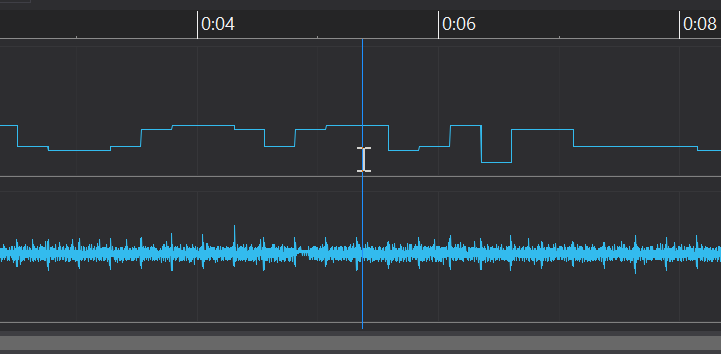

Setting up the Graph Lanes and Channels
When you first load in the log, all data from the log will be displayed. You may want to show or hide some channels and also change their colour. To do this right click on the Log Playback graph and select ‘Configure…’. The following window will then be shown:
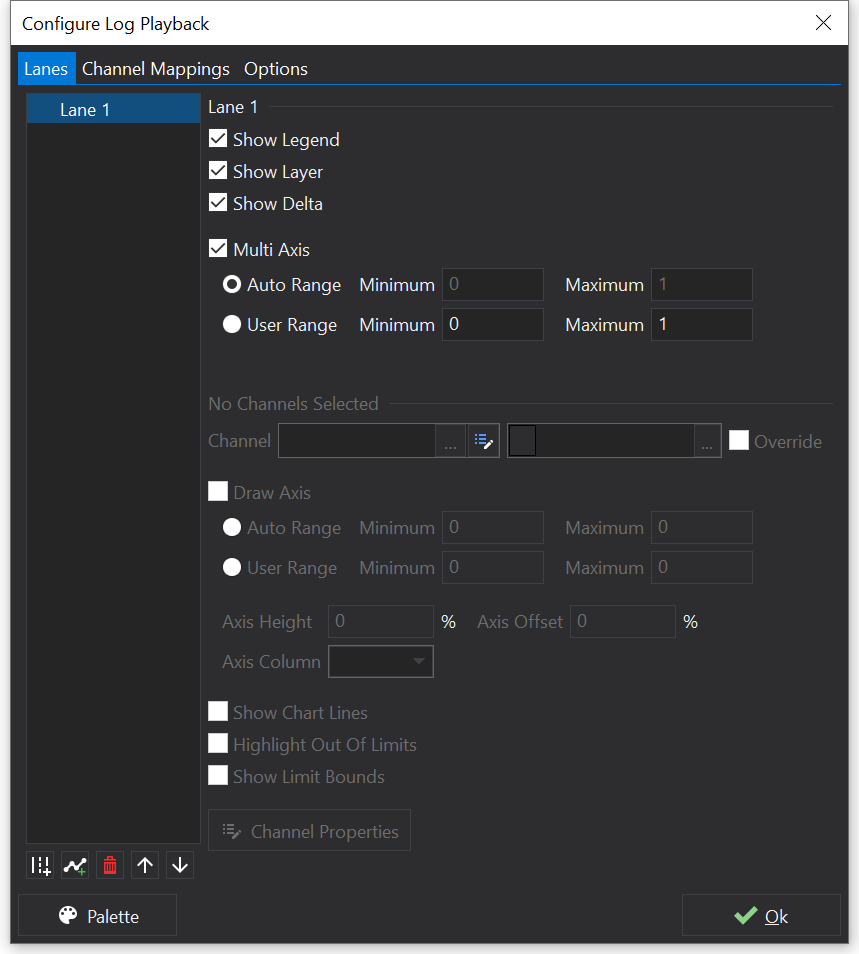

- Add Lane - This will add a new lane which in itself can contain many channels. Lanes appear separately in the graph and can be resized individually.


- Add Channel - Will add a new channel to the currently selected lane. A list of the available channels in the current data will be shown to select from and a selector for the colour you want the new channel to have.
- Remove - Will remove the currently selected channel or lane. A lane can not be removed if it has any channels in it.
- Move Up/Down - Moves the selected channel or lane up or down in the list. This will affect in what order they appear in the graph.
- Minimum/Maximum - Sets the minimum and maximum range for the channel.
- Colour - Sets the colour for the channel. Click on the colour for the channel, then click the ‘…’ button to change the colour.
Zooming In/Out of the Graph
This can be done in two ways:
- Click and hold the timeline at the top of the graph, then move the mouse up or down, down to zoom in and up to zoom out.


- Use the scroll bar - click and drag on an end of the scroll bar. Making the scroll bar smaller will zoom in, making it larger will zoom out.


The same can also be done to the amplitude of the graph by adjusting the vertical scroll bar on the right hand side of the graph.
Linking Channels to Channels
Linking the channels in the data-log to channels currently displayed in GWv4 allows the data to be displayed as channel objects such as a Tacho, Bar Gauge or Channel List.
Right click on the graph and select ‘Configure…’ then select the ‘Channel Mappings’ tab:
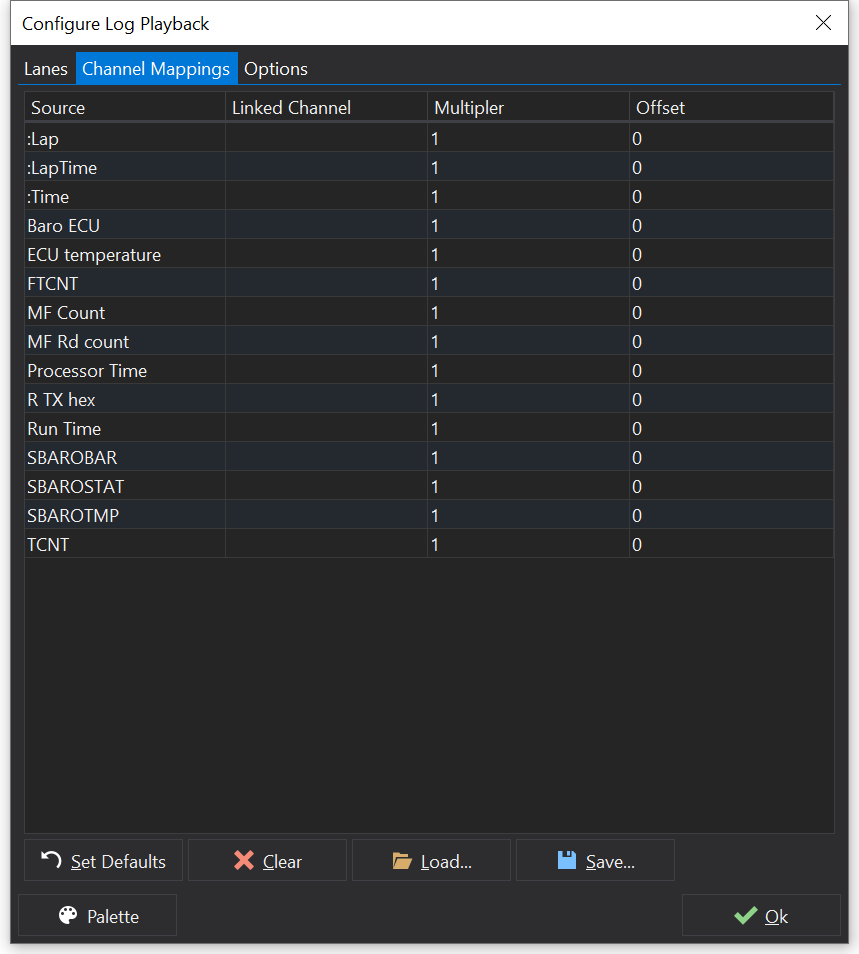

To link a channel, simply click the ‘…’ in the Linked Channel column for the channel you want to map and select from the currently available channels. The linked channel will then be displayed:
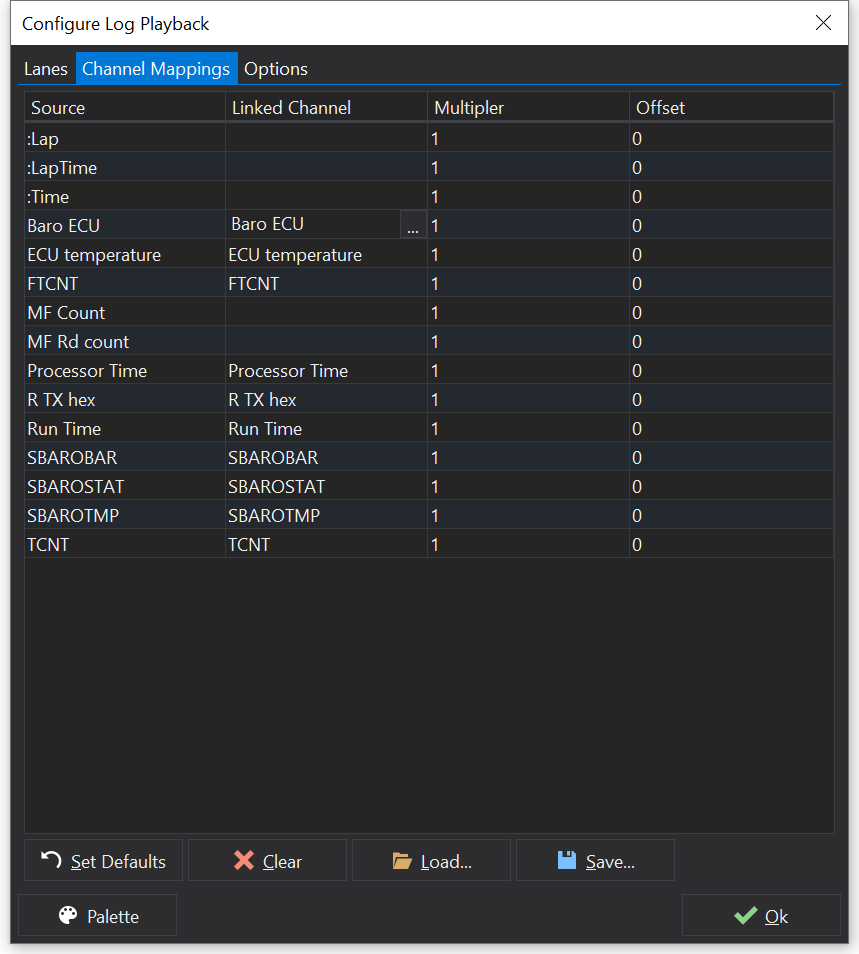

- Multiplier/Offset - Will multiply the raw value by the multiplier value and add or subtract the offset. Useful for converting units, for example: If road speed was recorded in Kph and you want to playback in Mph, then setting the multiplier to 0.62 would achieve this.
- Set Defaults - This will automatically attempt to mach the channels from those currently available. This can be a quick way to link multiple channels. If the data-log was not made by the current ECU version, then names may differ and some channels will not auto-match.
- Clear - Clears all the currently linked channels.
- Load/Save - Allows you to load and save the currently linked channels.
Configure View Options
The Options tab allows you to customise the Log Playback view:
